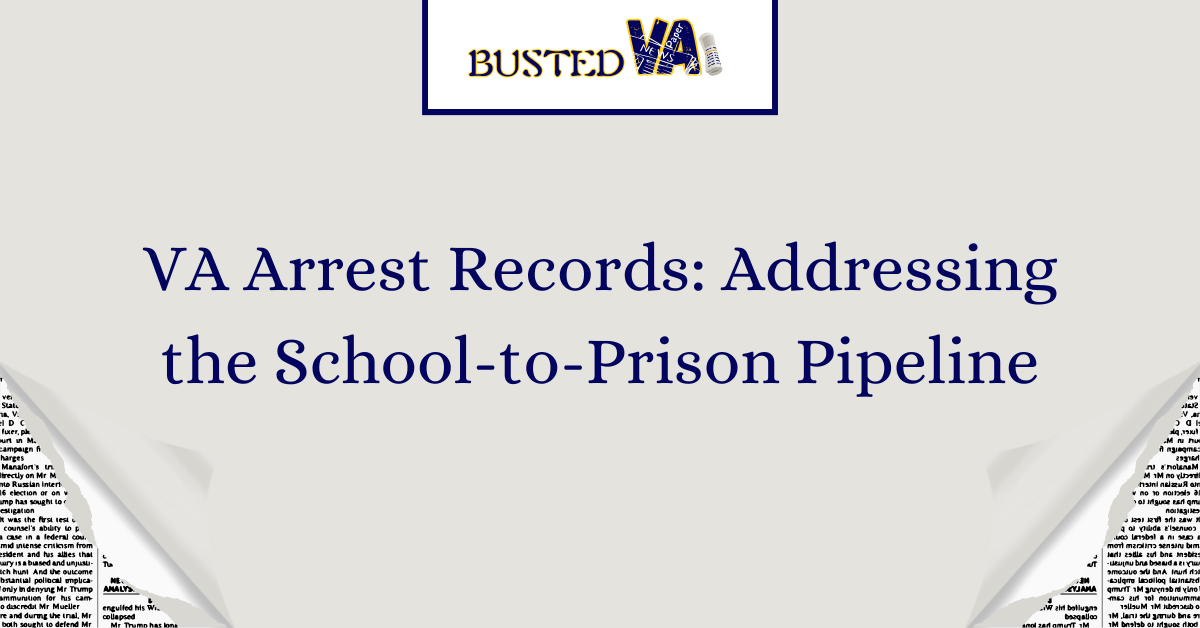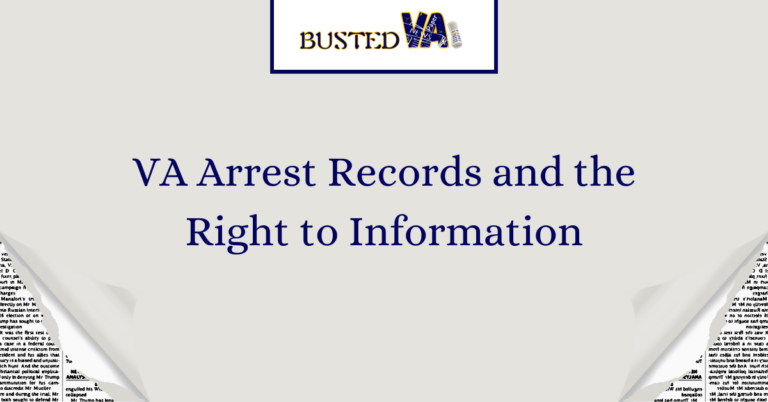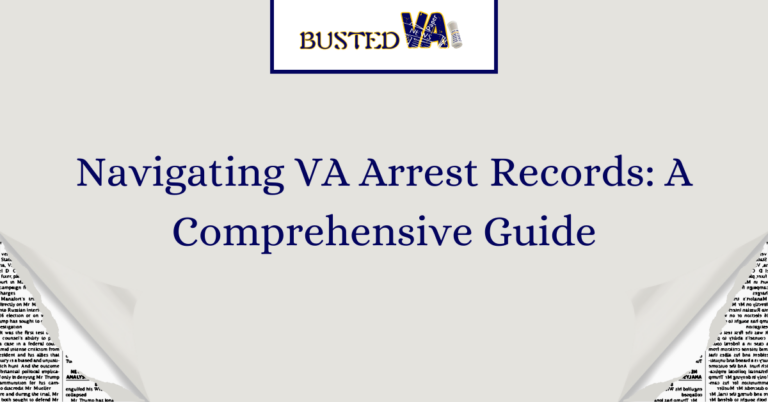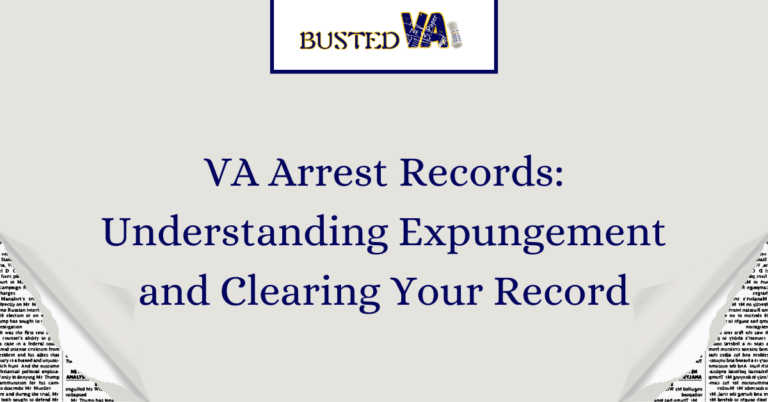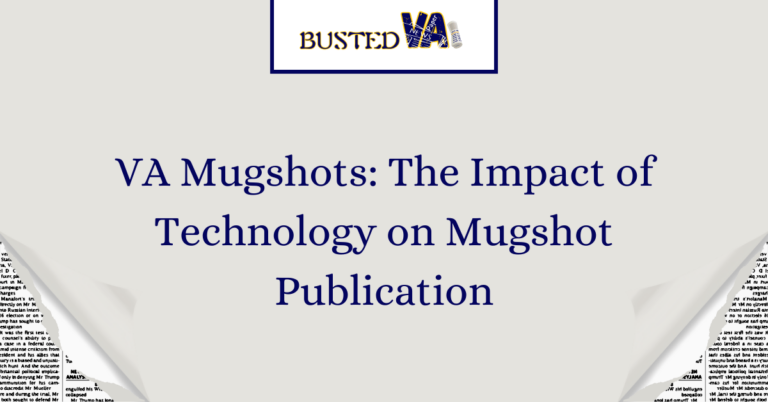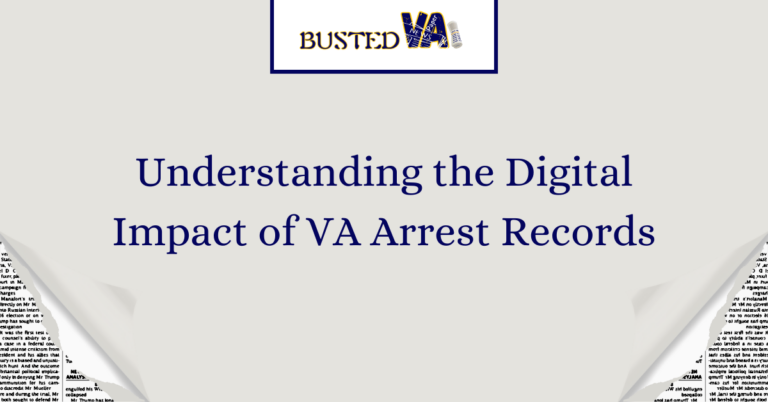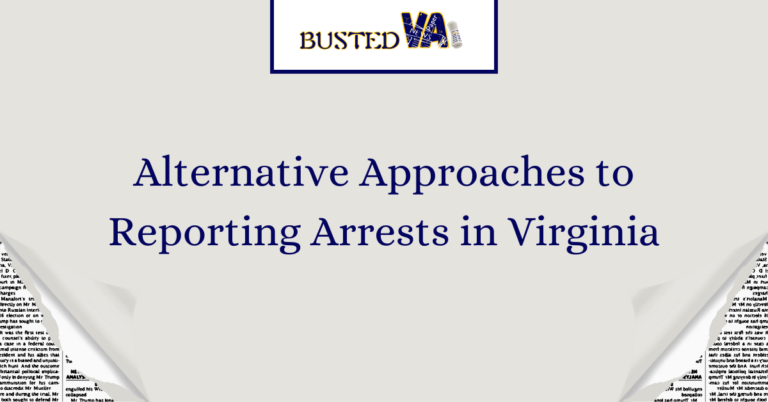VA Arrest Records: Addressing the School-to-Prison Pipeline
In the United States, the school-to-prison pipeline represents a disturbing trend where students, particularly those from marginalized communities, are funneled from schools into the criminal justice system. Within this systemic issue, Virginia (VA) arrest records play a significant role, exacerbating the pipeline’s effects on vulnerable youth.
Understanding VA Arrest Records
VA arrest records encompass a broad range of legal documentation pertaining to individuals’ interactions with law enforcement agencies within the state. These records detail arrests, charges, and, in some cases, convictions, creating a comprehensive profile of an individual’s involvement with the criminal justice system.
Impact on Education
The ramifications of VA arrest records are particularly pronounced in educational settings. Students from marginalized backgrounds, such as Black and Latino communities, are disproportionately affected by harsh disciplinary policies rooted in zero-tolerance approaches. Such policies often result in the escalation of minor infractions to criminal offenses, leading to the involvement of law enforcement and the creation of arrest records.
Role of Schools and Law Enforcement
Zero-tolerance policies prevalent in many schools contribute significantly to the school-to-prison pipeline. These policies mandate severe consequences, including arrests, for a wide array of behaviors, ranging from schoolyard fights to minor disruptions in class. Additionally, the presence of school resource officers, though intended to enhance safety, can inadvertently criminalize student behavior, further fueling the pipeline.
Consequences for Students
The repercussions of VA arrest records extend far beyond the immediate academic environment. Students saddled with such records face significant barriers to future success, including limited employment opportunities and stigmatization within their communities. Moreover, the psychological toll of being labeled as a criminal at a young age can have profound and lasting effects on an individual’s self-esteem and mental well-being.
Alternatives to Punitive Measures
Efforts to address the school-to-prison pipeline must prioritize alternative approaches to disciplinary action. Restorative justice programs, which focus on repairing harm and fostering dialogue rather than punitive punishment, have shown promise in reducing recidivism rates and promoting a sense of accountability among students. Additionally, access to counseling and support services can help address the underlying issues driving problematic behavior.
Policy Implications
Reforming disciplinary policies within schools is crucial to mitigating the impact of VA arrest records on vulnerable youth. This includes advocating for the repeal of zero-tolerance policies in favor of more nuanced approaches that prioritize rehabilitation over punishment. Furthermore, ensuring transparency and accountability in record-keeping processes is essential to safeguarding students’ rights and preventing the unjust labeling of individuals as criminals.
Advocacy and Activism
Addressing the school-to-prison pipeline requires collective action from communities, educators, and policymakers. Community involvement, including grassroots organizing and activism, plays a vital role in raising awareness of the issue and mobilizing support for reform efforts. Additionally, engaging in legislative advocacy can lead to tangible policy changes that dismantle the systemic barriers perpetuating the pipeline.
FAQs
What factors contribute to the school-to-prison pipeline?
At titleVA Arrest Records, we recognize the importance of delving deep into the factors that contribute to the school-to-prison pipeline. Our team of experts and advocates works tirelessly to understand the root causes of this troubling issue. By examining various elements such as socioeconomic disparities, racial biases, and inadequate support systems, we aim to gain a comprehensive understanding of the problem.
Identify school-to-prison pipeline trends?
Through our extensive database of arrest records in Virginia, we are able to analyze patterns and trends that emerge within the school-to-prison pipeline. Our dedicated team meticulously studies the data to identify key areas that require immediate attention. By doing so, we can effectively target our efforts towards implementing solutions that address the underlying issues.
What is your approach to advocating for policy changes?
One of our primary goals is to advocate for policy changes that can break the cycle of the school-to-prison pipeline. Armed with the insights gained from our data analysis, we collaborate with lawmakers, educators, and community leaders to push for reforms that prioritize the well-being and success of all students. By highlighting the systemic issues and proposing evidence-based solutions, we aim to create a more equitable educational system.
How to tackle school-to-prison pipeline?
Achieving meaningful change requires collaboration and cooperation from various stakeholders. At titleVA Arrest Records, we actively engage with educators, parents, students, law enforcement agencies, and community organizations to foster a collective effort towards dismantling the school-to-prison pipeline. By bringing together diverse perspectives and expertise, we can develop holistic solutions that address the multifaceted nature of the issue.
Raise school-to-prison awareness easily?
Creating lasting change requires widespread awareness and understanding of the school-to-prison pipeline. We are committed to raising awareness within the community, educating individuals about the harsh realities faced by many students. Through workshops, forums, and outreach programs, we aim to foster empathy, compassion, and a collective sense of responsibility in addressing this critical issue. Together, we can create a more just and equitable society for all.
Conclusion
The prevalence of VA arrest records contributes to the perpetuation of the school-to-prison pipeline, disproportionately impacting marginalized youth and hindering their educational and life opportunities. By implementing alternative disciplinary measures, advocating for policy reform, and prioritizing community involvement, we can work towards dismantling this harmful cycle and fostering a more equitable and just educational system for all students.

